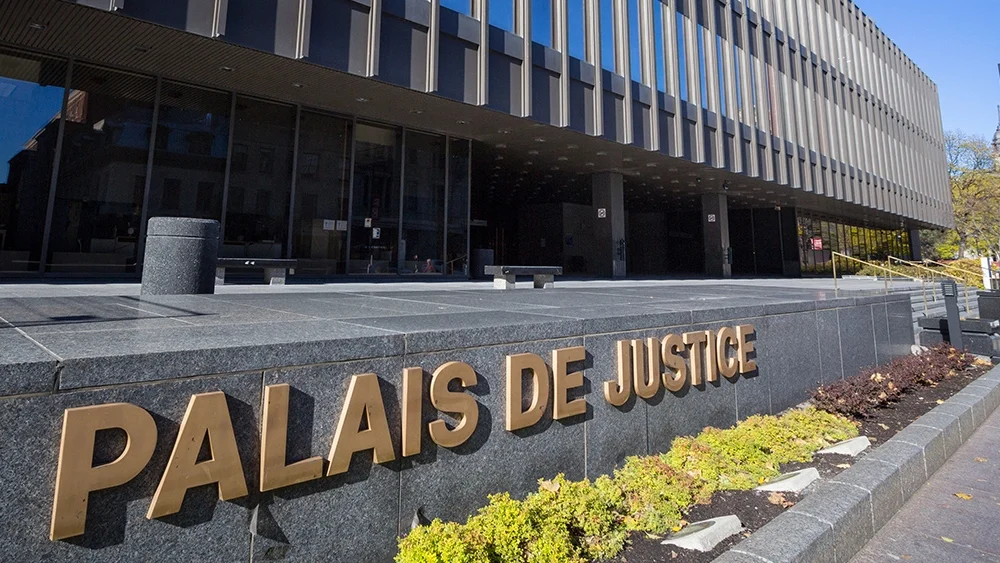Jewish service organization B’nai Brith Canada announced on July 27 that it will back a lawsuit filed against McGill University, the Students’ Society of McGill University (SSMU), and Solidarity for Palestinian Human Rights McGill (SPHR) for “participating in creating an antisemitic environment.” The lawsuit, filed by Jonah Fried, U3 Arts, claims that attempts to implement the Palestine Solidarity Policy not only contradict McGill’s Memorandum of Agreement with SSMU, but also violates SSMU’s own constitution.
Fried, the plaintiff, officially filed the lawsuit on July 22 in the civil division of the Superior Court of Quebec. He is receiving financial support exclusively from B’nai Brith’s Legal Defense Fund though he declined to clarify whether his attorney, Michael Bergman, is associated with the organization. In an email to The McGill Tribune, Fried claimed that McGill failed to properly address the “discriminatory” Palestine Solidarity Policy.
“We [Fried and B’nai Brith] are suing because McGill’s administration is not enforcing its anti-hate policies—which the Palestine motion violates—allowing antisemitism to fester,” Fried wrote. “We want to show all Canadian universities that, with the help of B’nai Brith Canada, the Jewish community will not stand for this any longer.”
Fried also said that “Jewish students need to see that they are not alone, and that there are legal resources available to challenge antisemitic prejudice.”
Riley* and Blake*, two representatives from SPHR McGill, told the Tribune in an interview that SPHR has yet to gain access to a copy of the lawsuit; the plaintiff has not sent the group a copy and, despite the lawsuit being part of the public record, an electronic version of the document has not been made available online. In fact, SPHR members only learned of the lawsuit after it was reported on by several media outlets.
“We do not have more details than what the press has released,” Riley said. “We do not even know if [Fried] is actually going to go through with it [….] We have not looked into [obtaining a lawyer] yet because we do not know what we are faced with […] but so far we have been offered legal support.”
The lawsuit did not come as a surprise to Riley and Blake, however, as they explained that backlash against pro-Palestinian activists is commonplace.
Blake shared that SPHR has received lots of support from organizations outside the McGill community. This support extends from the willingness to provide legal aid to requests for interviews about the struggles Palestinian students have dealt with on and off campus. Media organizations and non-profits have also asked for resources that provide in-depth information about the injustices Palestinian people and their supporters face.
One organization that has openly and proudly supported SPHR and the larger Boycott, Divestment, and Sanctions movement is the Canadian Foreign Policy Institute (CFPI). On July 14, CFPI hosted a virtual rally, during which it invited members from SPHR McGill to share their stories about pro-Palestinian advocacy and the attacks they have faced—such as having personal information posted on the pro-Israel watchdog website Canary Mission—as a result of such work.
In an interview with the Tribune, Yves Engler, board member and fellow of CFPI, explained that the webinar was preceded by the publication of a letter in support of the Palestine Solidarity Policy signed by CFPI, Just Peace Advocates, and Roger Waters, among others. According to Engler, the rally was not only about supporting students, but also showing organizations like B’nai Brith, the Centre for Israel and Jewish Affairs, and the McGill administration that they cannot suppress the will of the student body without facing external backlash.
“There needs to be pushback against the hard, aggressive, outside lobbying of these anti-Palestinian, pro-apartheid organizations,” Engler said. “It is important that B’nai Brith and these other bullies do not get their way.”
Engler, along with representatives from SPHR, expressed confusion over why Fried filed his lawsuit, since the Palestine Solidarity Policy was ultimately abandoned by SSMU. Richard Gold, a law professor at McGill, explained in an email to the Tribune that the basis of the lawsuit is unclear. He pointed to the passing of Bill 32 earlier this year, which protects an individual’s right to freely participate in discussions and debates on campus without being persecuted for their “doctrinal, ideological, and moral” beliefs.
“Whether one agrees or not with the substance of the referendum […] you cannot sue because someone tried to run a referendum that never had any effect,” Gold wrote. “I see no obvious legal basis for the claim against McGill and the student organizations, [it] would seem to run against Quebec’s Bill 32.”
Riley and Blake questioned whether other Jewish students at McGill felt the same as Fried. Both SPHR members clarified that they do not consider themselves to be antisemites and explained that their pro-Palestinian activism is only ever geared toward raising awareness about the killing of innocent Palestinians, not spreading hate.
Hillel McGill told the Tribune in a written statement that it took issue with the Palestine Solidarity Policy, but relied on the mechanisms in place at McGill and within SSMU to address their concerns. The student group clarified, however, that it is not opposed to the lawsuit.
“This is one individual’s approach, his way of doing things, and that is his right,” the statement read. “At Hillel we are committed to working with students on the ground to build bridges, fight antisemitism and work to affect change ensuring everyone can enjoy a good campus life [….] That is why it was so important for us to participate in in the process that led to McGill’s Initiative Against Islamophobia and Antisemitism.”
Some, on the other hand, such as Liam*, BA’ 20 and former member of Independent Jewish Voices (IJV) McGill, find Fried’s claims of antisemitism brought on by the Palestine Solidarity Policy to be unfounded. IJV is a Canadian Jewish organization that bases itself on the principle that supporting the pro-Palestine movement does not make one antisemitic. As a member of the Montreal chapter, Liam expressed dismay at Fried’s decision to go to court in an email to the Tribune.
“There is a difference between being uncomfortable and unsafe, and university is supposed to be a place where you can be exposed to a diversity of opinions,” Liam wrote. “Given the serious incidents of antisemitism that have happened around the world in past few years, the focus should be on combatting actual antisemitism. Attempting to stifle students’ free speech criticizing Israel’s policies by claiming that it’s antisemitic is not going to make a safer environment for Jewish students.”
Liam’s position on the lawsuit, as well as those of Engler, Riley, and Blake, is not shared by McGill. As demonstrated by its threat to terminate its Memorandum of Agreement with SSMU, the McGill administration felt that the Palestine Solidarity Policy sowed further divisions on campus. Claire Loewen, a McGill media relations officer, detailed in an email to the Tribune that McGill attempted to rectify the division caused by the referendum question by creating the Initiative against Islamophobia and Antisemitism (IAIAS).
“The Final Report of the IAIAS contains a series of bold and concrete recommended actions that we will implement over the coming years. The University will act on each of these recommendations immediately to enhance inclusion and belonging for Muslim and Jewish members of our university community,” Loewen wrote. “Our diverse identities are not only accepted at McGill but honoured and celebrated; no one should ever feel that they must hide who they are to feel that they belong on our campuses.”
As of yet, no date has been set for when the lawsuit will be heard in court. SSMU did not respond to the Tribune’s request for comment and the McGill administration declined to directly address the lawsuit.
*Riley’s, Blake’s, and Liam’s names have been changed to preserve their anonymity.










Are any and all criticisms of Israel based in antisemitism? Is Israel then the only country on earth that is beyond reproach? They it do no wrong?
Calling all criticism of Israel racism or antisemitism is a mindless and vicious tactic designed to scare off anyone who might want to speak on this subject.
Criticism of Israel is not antisemitism. Ceaseless, vicious and largely baseless attacks on Israel when criminal regimes around the world (some amounting to genocide, viz. the Uighurs in China, or what is happening in Myanmar) seem immune to criticism by the SSMU is clearly the symptom of some sort of bigotry. I object to having my tuition and SSMU money on the promotion of anti-Israel propaganda.